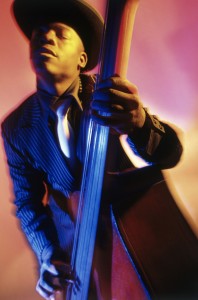
When you think of Nashville, Elvis, Dolly Parton, and country music come to mind. There’s no denying that Nashville is a mecca of music history, but you may not realize that one important influence to every genre of music is African-American musicians. In 2002, a group of individuals came together under the auspices of the Nashville Chamber of Commerce and decided to tell the story of African-American influence on more than 50 genres of music. This group is hoping to open the National Museum of African-American Music in 2018, right in the heart of Nashville.
Celebrating African-American Music
In 1979, President Jimmy Carter declared June as Black Music Month. Although the month was recognized in the following years, it wasn’t until 2009 that President Barack Obama redefined the month as African-American Music Appreciation Month. Although there’s no way to fully explain the depths of how African-Americans have influenced music through the years, here’s a primer to get you started for this June.
Some of the earliest influences of African-Americans to the music in the U.S. is that of spirituals. Today’s gospel music has a number of roots from the early spirituals sang by plantation slaves. African-Americans brought liveliness to the gospels sung by white people. These songs were passed from generation to generation marking not only their conversion to Christianity, but their history and traditions from the motherland. Do a search for “African-American Gospel Music from Smithsonian Folkways” for a playlist of spirituals from popular artists of today.
After the Civil War
Former slaves were able to find a place in the music industry after the Civil War. African-American men originated the barbershop quartets that became so popular in the 1910s. This four-part harmonic singing was a completely new style born out of men who would actually come together in the barbershop. Another popular music style that emerged during this time was ragtime, which preceded jazz. Look up Scott Joplin on your favorite music provider to get a feel for ragtime.
In the early 20th century, music greats such as Louis Armstrong, Duke Ellington, and Jelly Roll Morton came along. Blues and jazz were popular, but some musicians believed that white audiences wouldn’t accept traditional black music. These musicians adapted their work into a genre which became known as swing. African-American musicians were able to study music at some of the major conservatories and produced musicals for Broadway and symphonic music. Even though there were still a number of class wars, in music, African-Americans were making their voices heard.
Mainstream Music Breakthroughs
In the mid-20th century, Billboard began their separate list of hit records for African-American music. In 1942, it was called the “Harlem Hit Parade,” but the name changed to “Rhythm and Blues Records” in 1949. Popular musicians of the era were Dizzy Gillespie, Miles Davis, John Coltrane, and Ornette Coleman, but the jazz music of the past became more intricate and technically challenging. Bebop and modal jazz were born. The rhythm and blues genre birthed the rock and roll craze. Chuck Berry and Bo Diddley had some success in rock ‘n’ roll, but it was Bill Haley and Elvis Presley, white musicians, who really took the music into commercial success.
In 1959, Motown was founded. This was the first record label that primarily featured African-American artists. Many of these early musicians achieved success with their soul music that had elements of pop. Aretha Franklin, The Supremes, The Temptations, and Marvin Gaye are all some of the biggest influencers that came out of that time.
The list of musicians who influenced today’s music could fill an encyclopedia. Don’t forget Jimi Hendrix and Otis Redding, or the Jackson 5, and that’s not even mentioning some of the greats of the past few years who brought hip-hop and rap to the radio. Take some time in June to listen to the influence of African-Americans in music. Make plans to visit Nashville when the museum opens in 2018.

